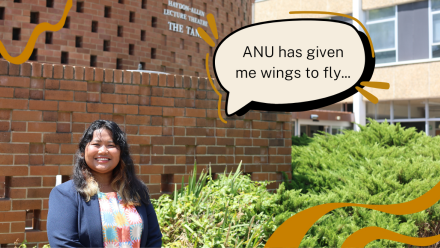Why we all need a shot in the arm
A couple of weeks ago, I got my first AstraZeneca vaccination. I made an appointment as soon as the books opened for over 50s and had my jab two days later. I was so excited - I just couldn't believe that I was getting vaccinated less than 14 months after I locked myself down at the beginning of the pandemic in Australia. Strangely, some of my friends couldn't understand my excitement. In fact, several said that they were going to wait for a while to see how things panned out. They gave a variety of reasons for this: they had an underlying condition that thought might mean they were more likely to get an adverse effect from the vaccine (unlikely); they preferred a choice of vaccines; they were concerned about variants and wanted to wait for the perfect vaccine; or they couldn't understand the urgency when there is no COVID-19 in the country.
I am surprised these conversations are continuing with such ferocity. I can understand people having concerns about the side effects of the AstraZeneca, even though severe adverse reactions are rare and treatable in most cases. I always suggest that if people are concerned about this, they should discuss it with their GP. What concerns me more is the sense of complacency and lack of urgency, especially in the over 50s. Vaccines are available, and its easy to get an appointment for this age group, and yet at the current rate, experts predict we will not get to the 80-90% vaccination rates we need until early 2023. The problem seems to lie in a muddled narrative and lack of a clear approach to overcoming vaccine hesitancy or complacency.
Countries like the US are tackling vaccine hesitancy by taking a "carrot" type approach; using incentives to increase uptake of the vaccine. For example, the CDC announced on the weekend that vaccinated people no longer have to wear a mask in most social situations. You can even get free doughnuts, beer and discounts - just Google "covid vaccine freebies near me" to see what's on offer. There is also talk of the use of "vaccine passports" that may mean that you cannot attend certain events without proof of vaccination. Other countries are using more of a "stick" approach - making vaccination mandatory with the threat of hefty fines for those that don't comply. Interestingly, a recent study showed that 73% of Â鶹´«Ã½AVs agreed that COVID-19 vaccination should be mandatory in certain circumstances, such as work, travel and study[1].
So what approach do we need in Australia? While the mandatory route is unlikely to get up in Australia, some elements of the US approach might be effective. For instance, there has been some discussion that Â鶹´«Ã½AVs will be required to be vaccinated before embarking on overseas travel as our border restrictions begin to ease, and that these individuals can quarantine at home and for shorter period when they return, and this makes sense.
However, I think we should be looking to our trans-Tasman cousins for inspiration. Their fun 'Ka Kite, COVID' ('See you, COVID') campaign ad[2] features a diverse group of Kiwis in a wide range of settings telling us why they are getting the jab, and finishes with "Do it for each other". This builds on their national approach throughout the pandemic where kindness and looking after the community have been pillars of their messaging. Â鶹´«Ã½AVs embraced this messaging early on by 'staying home and saving lives' but somehow we have reverted back to individualism. In other words, in many people's minds the reason for getting the jab is to protect themselves. We need to remind people that the vaccination is not just for their own health but to keep their community safe, particularly the most vulnerable.
But there's an even bigger picture reason to get vaccinated as soon as possible - for the good of our country. In simple terms we need to be able to open up our borders again because our current safety is coming at an ever-increasing cost. The longer our borders remain effectively closed, the more negative impact this has for our economy in general and the higher education sector in particular. We can deal with this in the short to medium term but can we really wait until early 2023? As recent commentary has suggested, we need a plan for opening up our borders in a graduated way and starting sooner rather than later. However, we need to do this safely and in a way that will not undo all the good that has been done so far. Once we do open up, we know that COVID-19 will get into Australia and become something we need to live with. If we haven't achieved an 80-90% vaccination rate by then, this will mean that we will have local spread, people will die, and we are likely to have to regress to a situation where we are living with more restrictions again. No one wants this.

Having access to effective and safe vaccines has given us the opportunity to emerge from our pandemic isolation and return to the international stage, while still ensuring we maintain the health of the Â鶹´«Ã½AV community. Let's not undo all our good work by dragging our feet just because we are enjoying COVID-free life in our big southern Pacific bubble. The clear message should be to get vaccinated when you can for yourself, your community, and your country. In doing so we can return to a real post-COVID normal as soon as we can. Oh, and you get a lollipop!


